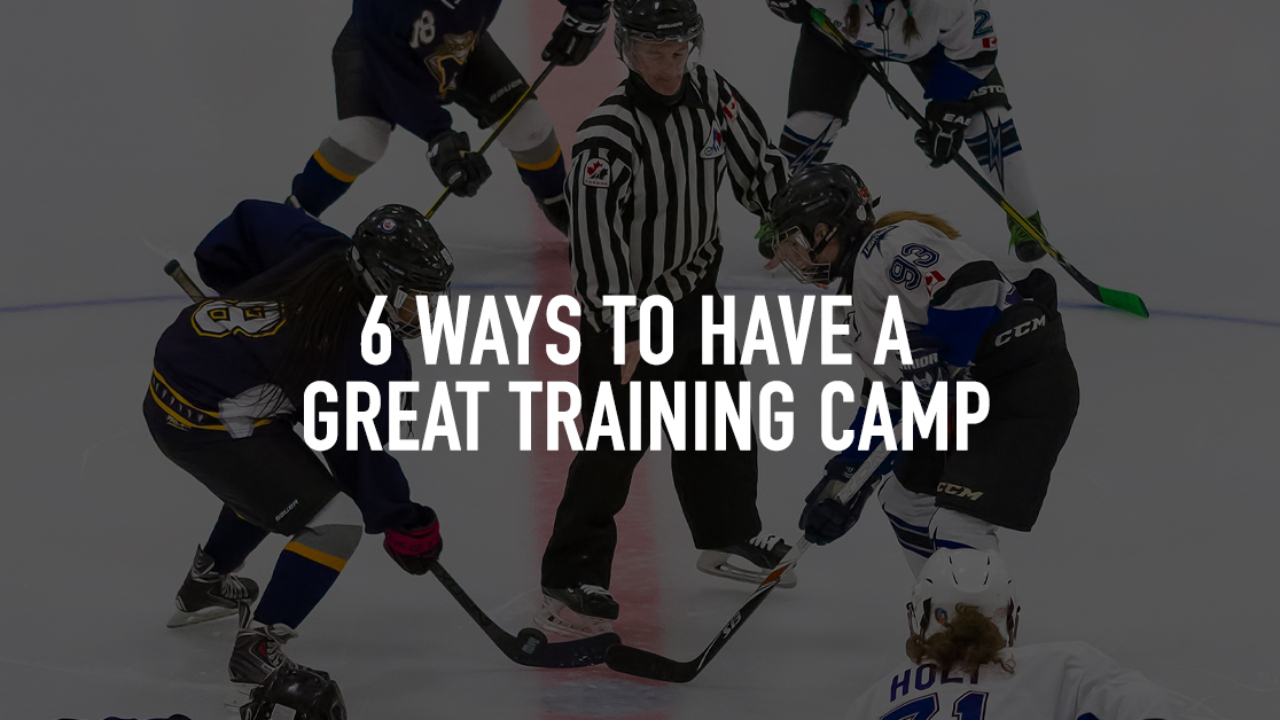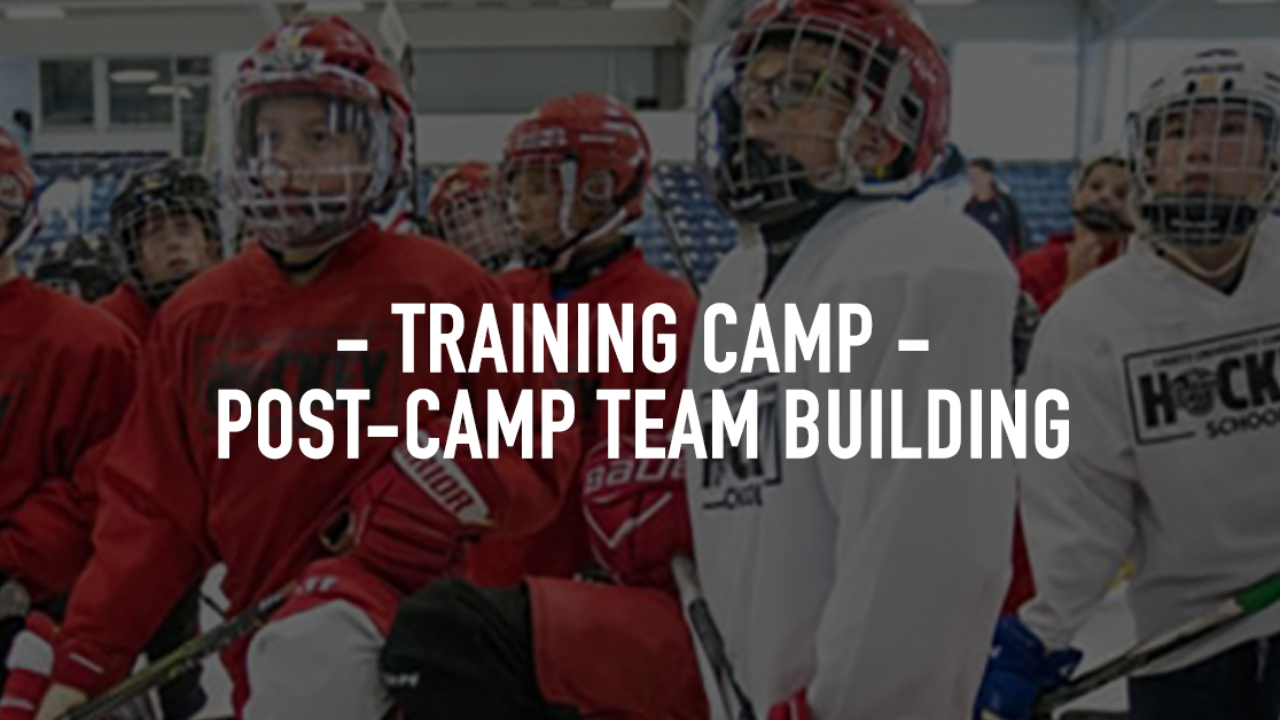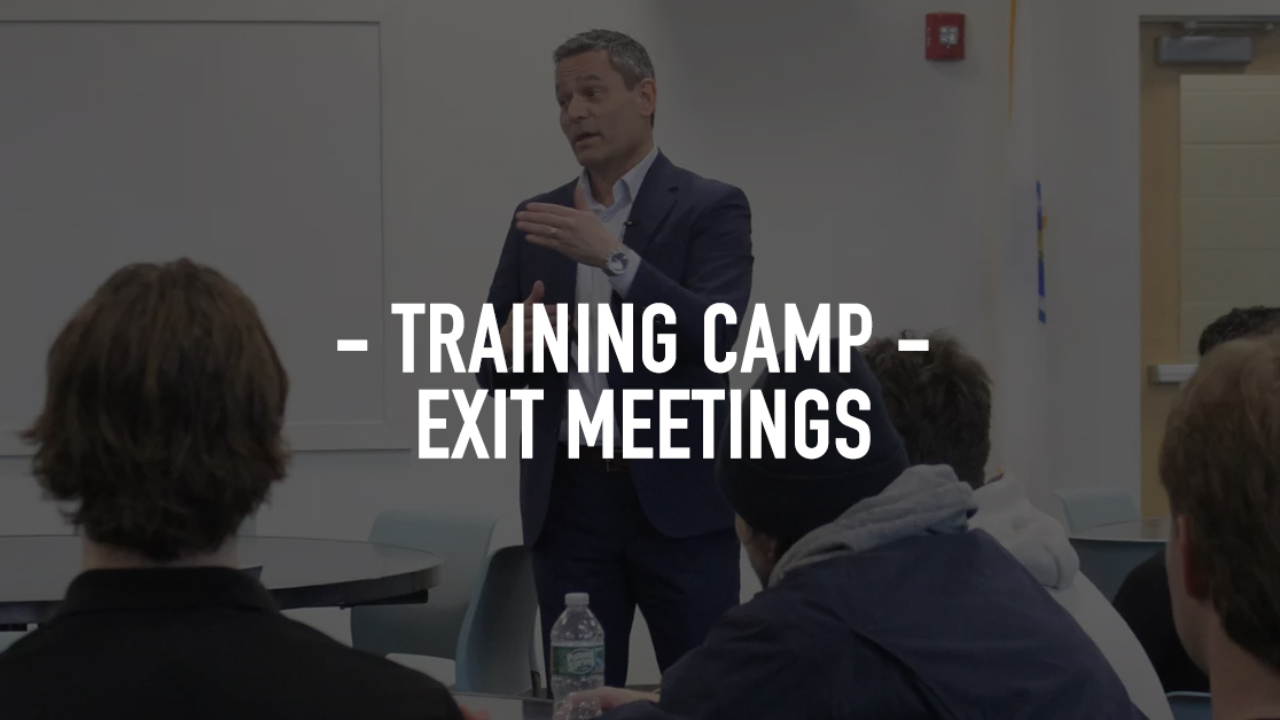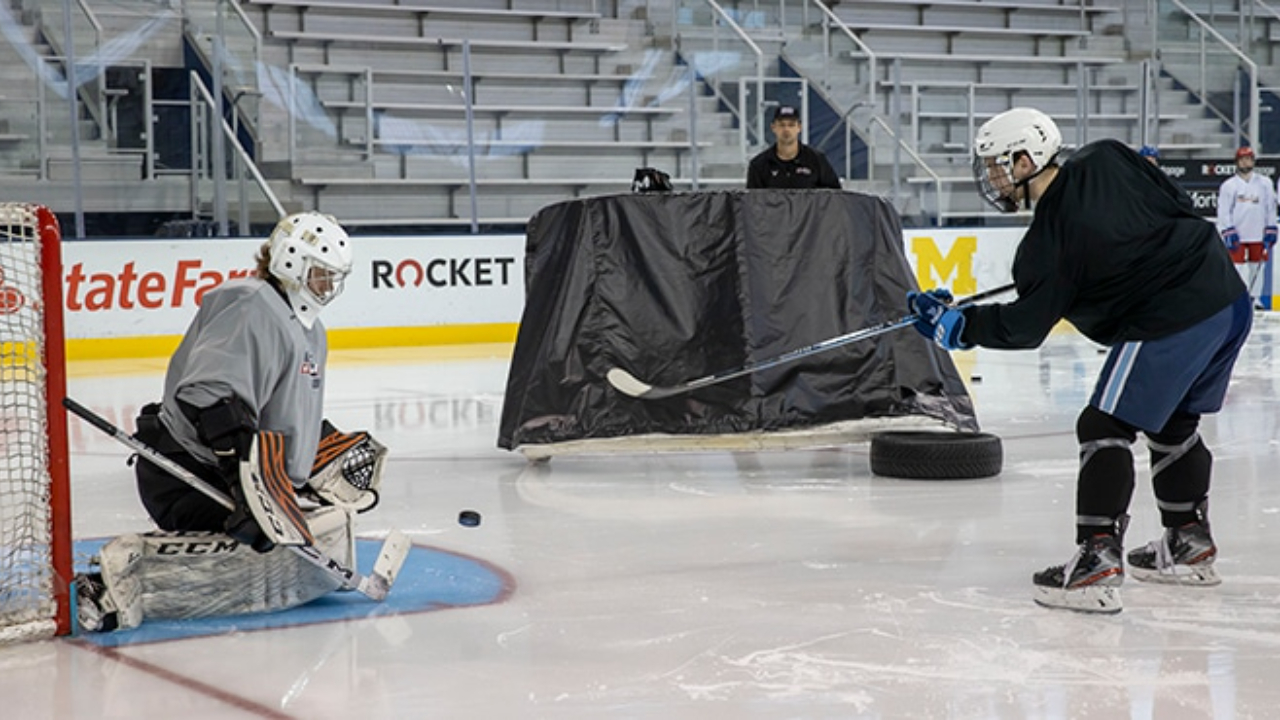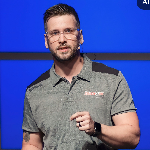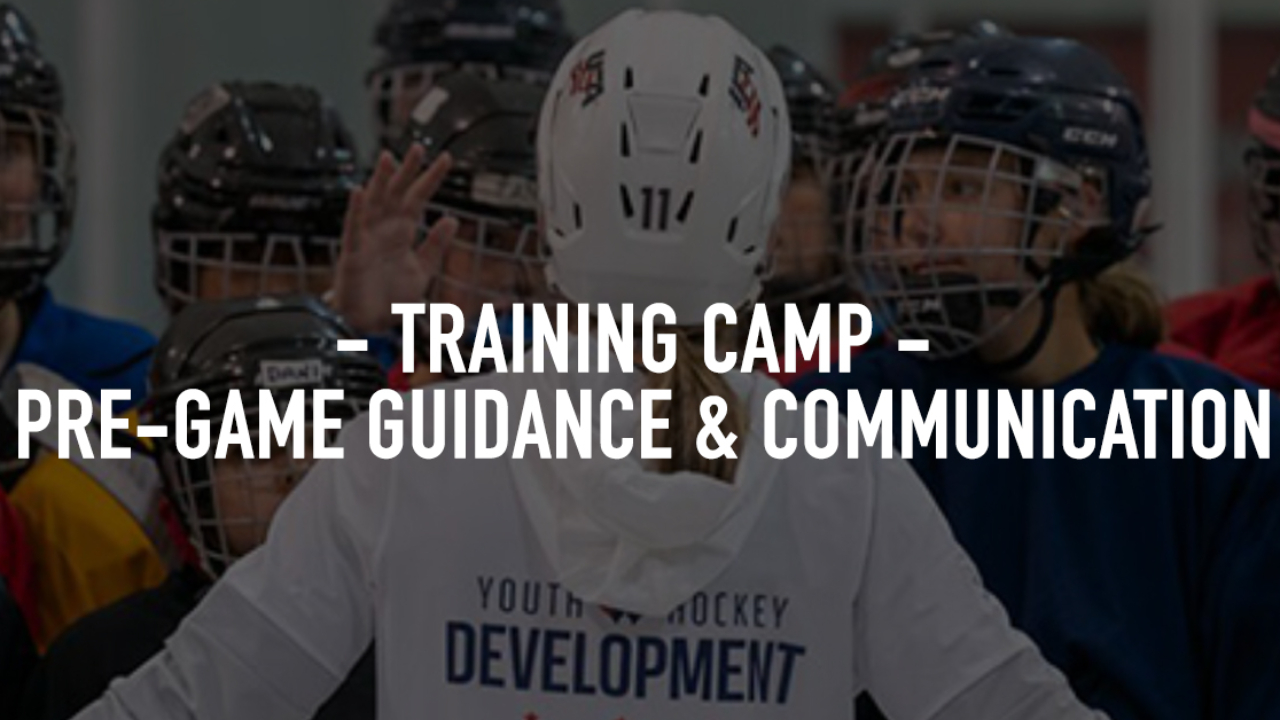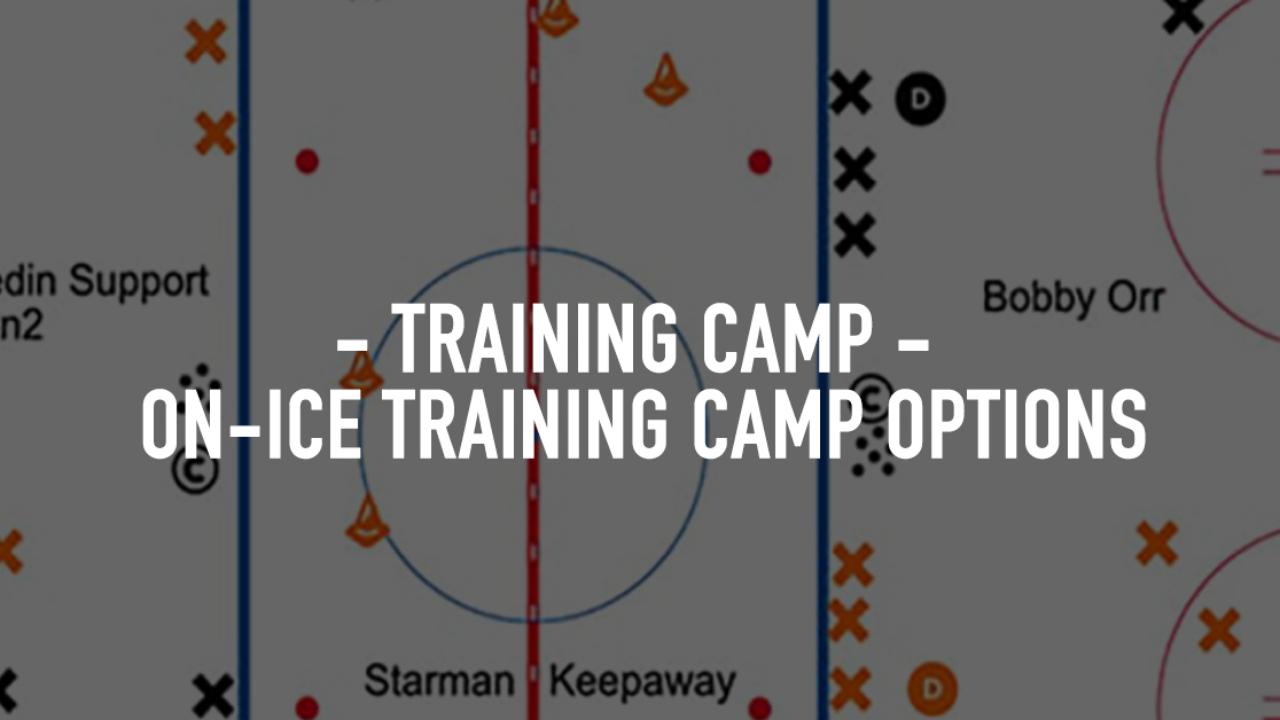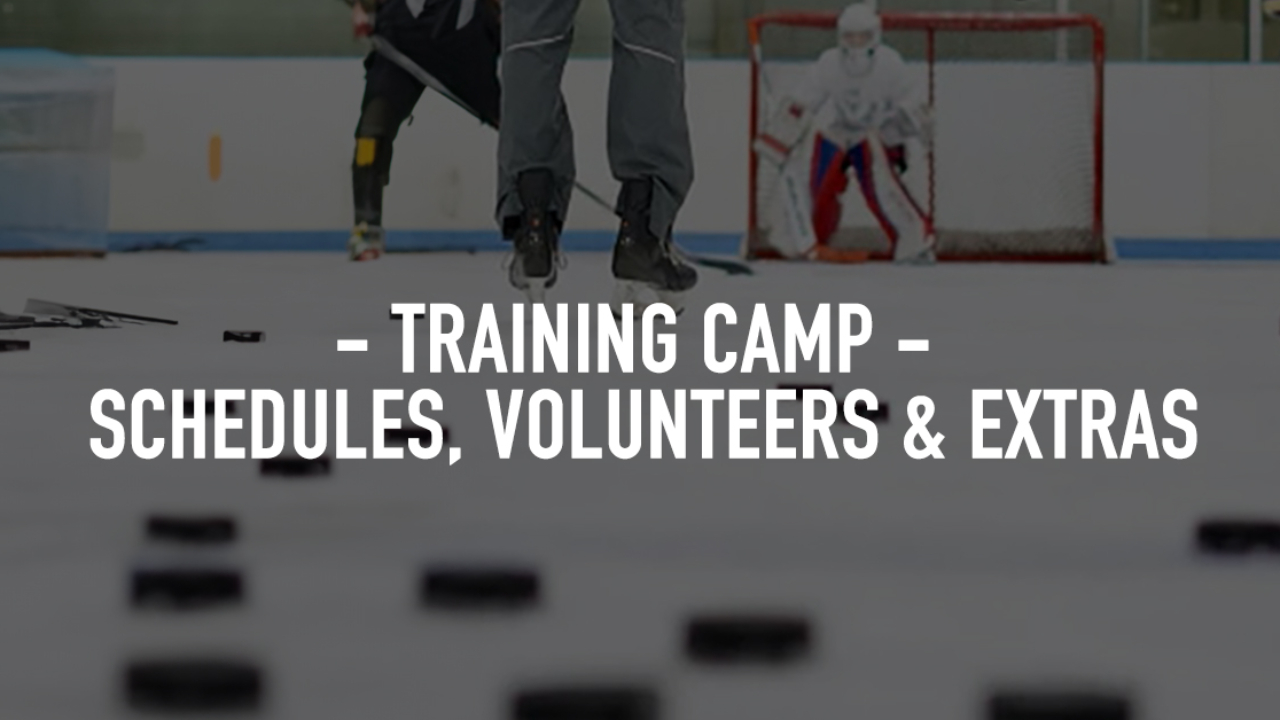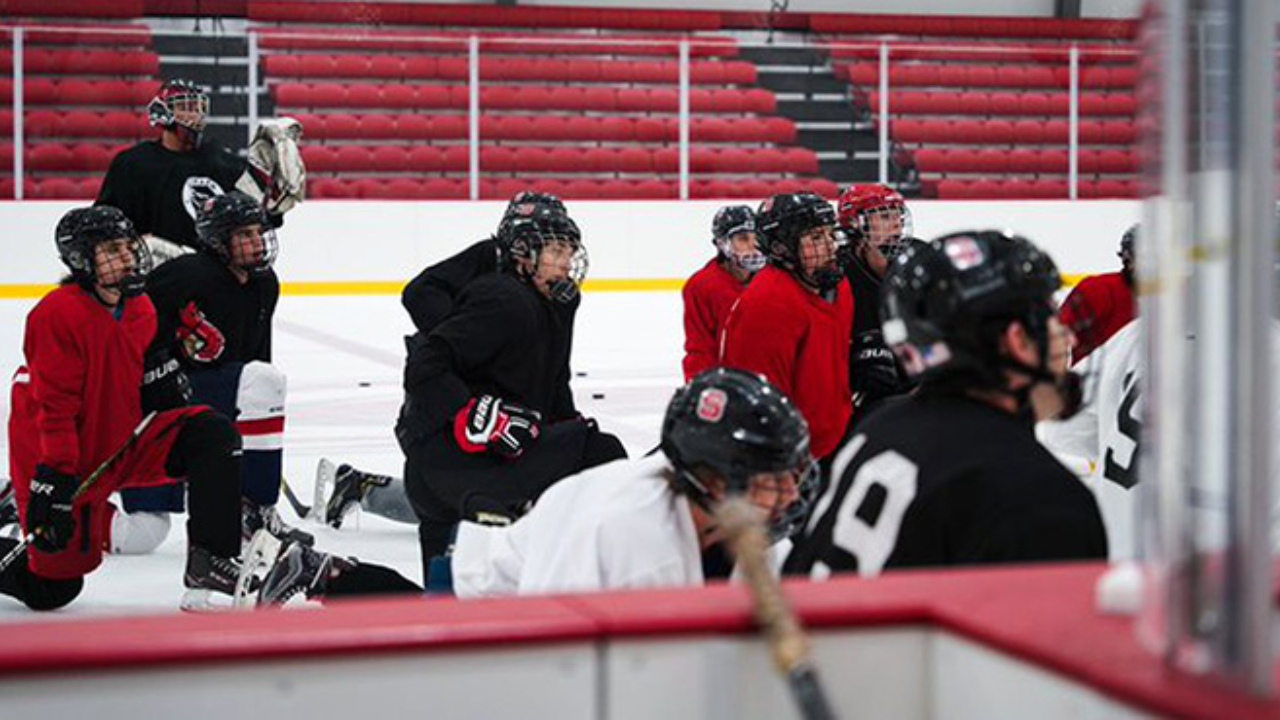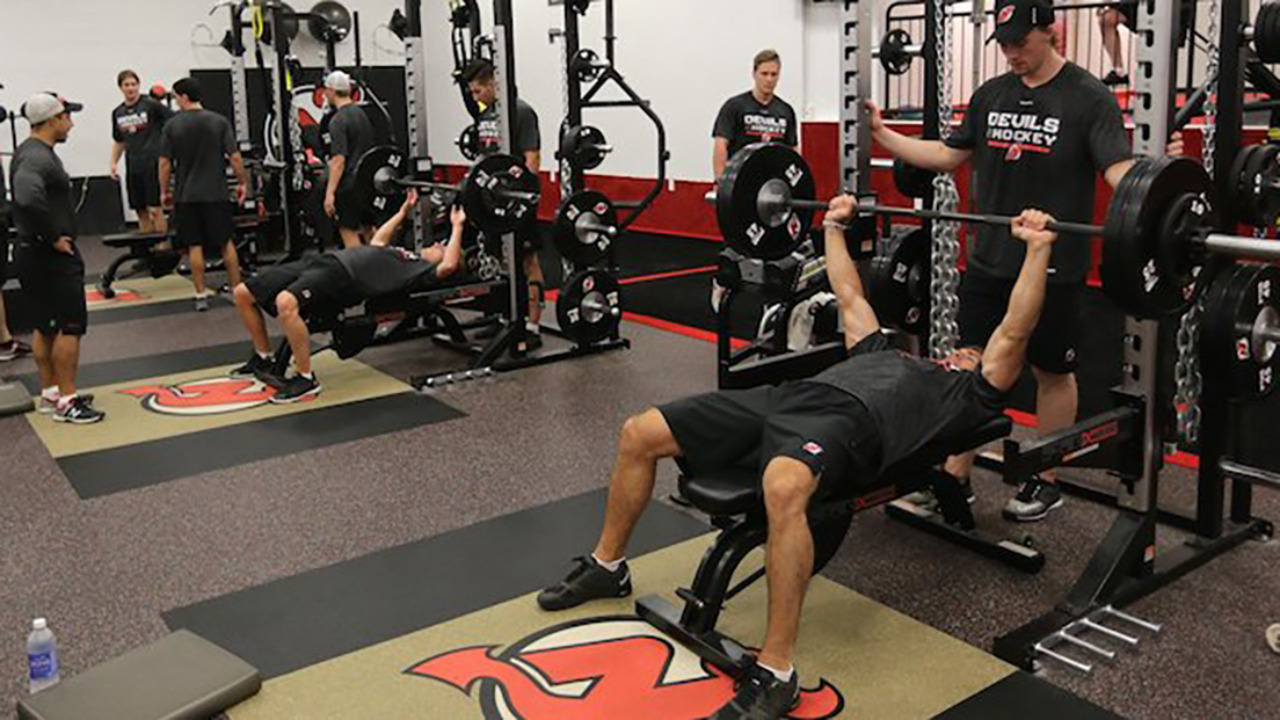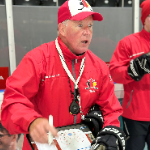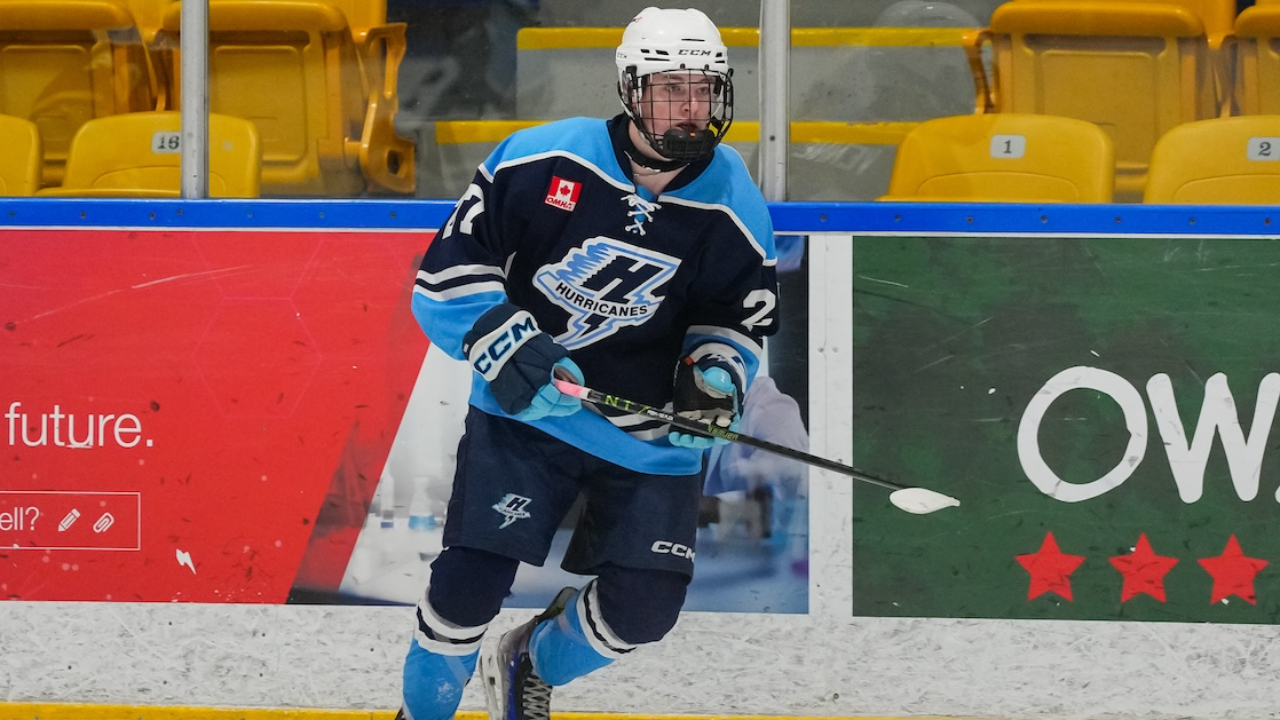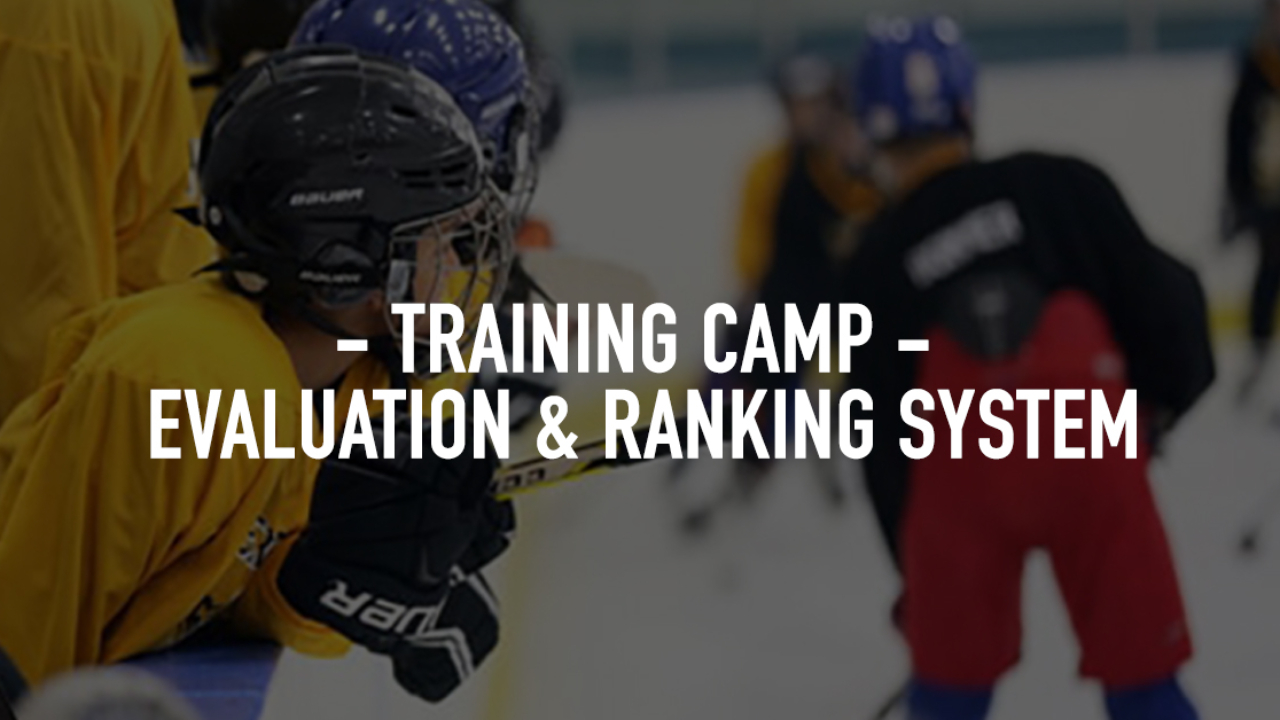
Digging into the character of your players during training camp is important.
As we’ve seen in the first three parts of Training Camp Exceptional, there are several elements to prepare long before the players hit the ice for the first time. But now that your schedule is dialled in, the teams are organized, and you’ve made your expectations clear, it’s time to do what we’re all here to do: watch hockey.
Almost.
One thing that’s helped me over the past two years is seeking character references from scouts and past coaches. The fewer surprises the better. So when a player smashes their stick against the boards on the first day of camp I want to know if it’s behaviour that can be channelled properly or if it’s a consistent part of this person’s attitude. We all have to tackle the bad body language from time to time, and we all have different tolerance levels. Throwing a tantrum is never a positive first impression on a coach, but I also don’t think this type of behaviour should result in immediate write-off. Anxiety, pressure, rust – these can all show up early in camp, but if they’re hiding a player who’s better known for their resiliency, passion, and skill, then hopefully there’s someone who knows the player and can vouch for them. Maybe this is a player you can work with. Maybe they just need a steady hand. Maybe their positive impact on the team is worth the growing pains. But maybe none of these are true and, well, your decision is easier. In truth, those players have made the decision for you long before camp began.
This is the fourth of a six part series called Training Camp Exceptional. Here’s the criteria we used:
Age Groups
As the range of contributing coaches demonstrates, we made a distinction between training camp and tryouts. This series is generally intended for junior hockey and older, though many elements will no doubt apply to U18 and younger.
Content
Each post will cover the bones of training camp, from the planning, implementation, and fall-out. Hopefully you’ll get some inspiration or knowledge to help you run your next camp.
- Training Camp Exceptional Part 1: Schedules, volunteers & extras
- Training Camp Exceptional Part 2: On-ice training camp options
- Training Camp Exceptional Part 3: Pre-game guidance and communication
- Training Camp Exceptional Part 4: Training camp evaluation
- Training Camp Exceptional Part 5: Exit meetings
- Training Camp Exceptional Part 6: Post-camp team building
Before Camp: Do Your Homework
For the Rapid City Rush’s Scott Burt, researching a player’s character before camp begins is a crucial part of the job in his first year as a head coach in the ECHL.
“Here at the ECHL level we don’t have any scouts that would attend our camp, so it’s important to gather as much info as possible in the summer. It’s the key to our recruiting and has a big impact on camp and eventually the team. This is a fresh situation so we lean on the relationship we built with individual players throughout the summer or with our teams last season.”
- Scott Burt, Rapid City Rush
Whether you’re coaching junior hockey or the professional ranks, every player who walks into your rink will be unique. Digging into their character prior to camp will help you validate what you’re seeing on the ice, and it will either develop trust that the player can continue strong play when the games start and the score counts, or it can continue a trend of negativity that might help you decide that the player isn’t worth bringing through.
During Camp: What Are You Looking For?
This is probably the section of Training Camp Exceptional in which the range of answers is just too large to effectively boil down, so we won’t try, but we will define what works for our contributors. The easy answer is that we’re all looking for the best players, right? Definitely, but ultimately we want to have the best team.
We’ve covered character already, but when it comes to on-ice contributions you’ll inevitably have to consider:
- Age: is it the right time for this player to make the opening night lineup? Should an older or younger player be given that spot instead?
- Versatility: is this player someone who can chip in all over the lineup, in different game-states, and thus deliver value later that’s not obvious in camp?
- Current roster: if your team is going to be successful, is this player and their skill-set going to get enough of an opportunity to contribute?
For UBC Men’s Hockey coach Sven Butenschon, 2021’s training camp is an opportunity to construct the roster in a way that helps the team reach the national finals again.
“Everyone is coming in with good pedigree following great junior careers where they were primarily offensive stars, and we have so many new players this year. But we also have fifth year players and returning guys who can put up numbers, who have developed and earned those opportunities since their freshman season. We need the new players to be consistent, good at their position, and contribute to the little areas so they can gave an impact on the game and help us win. If you want a role on the team and you want more ice time, you have to be great away from the puck, great on the penalty kill, great on the forecheck and playing the body. That’s what our group needs, that’s what will help us, and right now I don’t know who that’s going to be.”
- Sven Butenschon, UBC Thunderbirds
It’s important to note that your expectations will help you see things you might not otherwise see. Choosing an area of focus doesn’t eliminate other useful attributes, rather, it will enhance attributes that you believe are important to your team.
“I want to see the intangibles a player brings or the sense someone gets about a player’s character. I love skill and speed but also really like good quality people who are willing to learn and have a positive attitude.”
- Kris Mallette, Kelowna Rockets
And if you’re feeling like there’s just too much going on and you want to take a second look? Just turn on the cameras.
“Video during camp is a powerful tool and helps ensure nothing goes unnoticed.”
- Scott Burt, Rapid City Rush
After Camp: Everyone Has a Voice
The day is done and your staff is crowding into a conference room, topping up their coffee, and taking tiny bites of different donuts because then they won’t feel guilty for eating an entire donut on their own (just me?). Everyone has a story about an epic argument over a specific player during a scouting meetings. I certainly had my fair share over the last two years, so I wanted to make sure those arguments were constructive. I had a dedicated team of scouts, plus a skilled head scout, myself, a former player or two, and our general manager, and the beauty of those meetings was that everyone brought a unique perspective for every player. Many of the scouts had watched these players for years as they came up through the system, while our head scout was responsible for the background on each player and much of the homework we’ve already talked about. I believe in large scouting meetings, but I also believe in efficiency, and yes, I do believe they can all exist together.
But you’ll be there forever if you’re not organized.
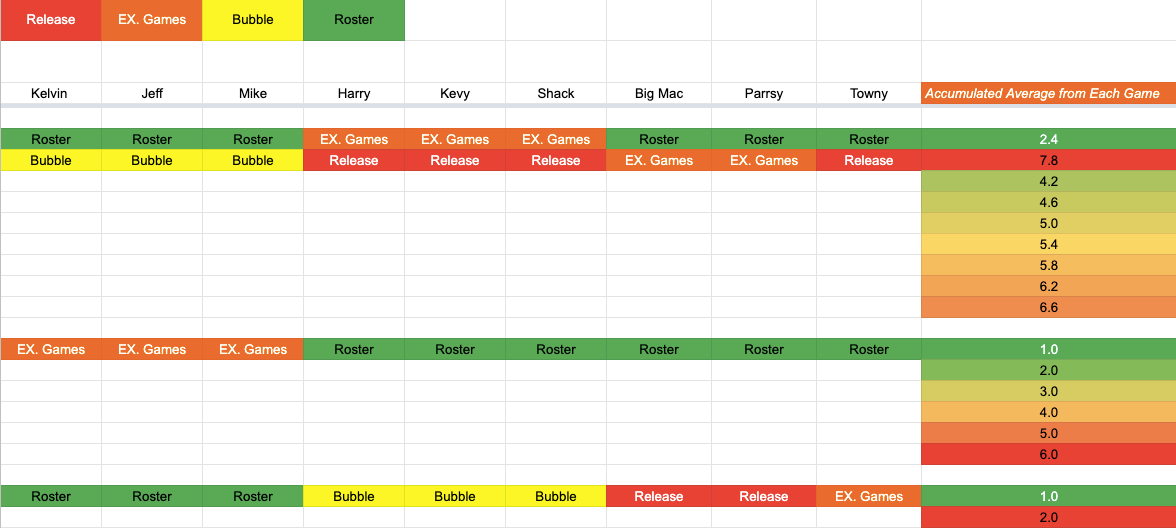
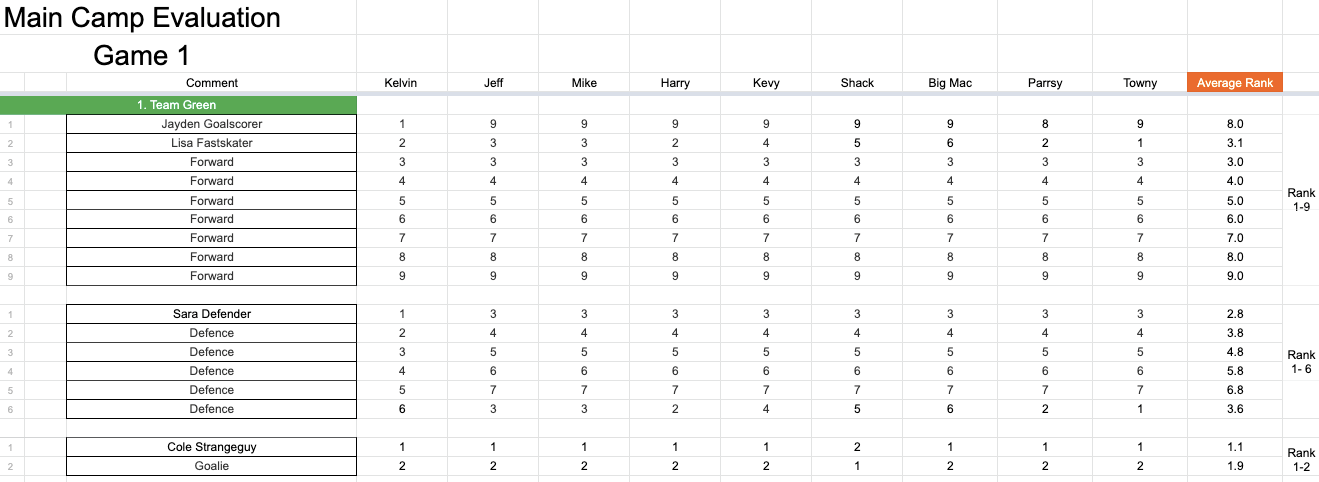
Ranking vs. Scoring
I’ve used both methods in the past, but I find ranking each player in their position is the most efficient way to make use of your time at training camp. You’re deciding between specific players after all, so if a player is consistently ranked first or second by everyone except you, then maybe you need to adjust your sights.
Here’s a detailed ranking template you can download that will help you get everyone organized, even if they don’t agree with each other: Training Camp Ranking System
It’s important to go around the room and hear from the people you trusted to help build your team. Everyone deserves the chance for their voice to be heard. Ultimately you might not choose to move that player through, and you might kick off another round of chirps, but that’s ok. It’s also ok if you have intelligent people who can change your mind or help you see someone in a different light.
Next up: exit meetings. Unfortunately you’re mostly on your own at this point, but that’s ok. The responsibility of releasing a player is a privilege.

